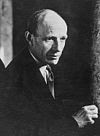Viceroys and Important Events In Their Rules
1.Lord Canning (1856-1857):-
 |
| Charles John Canning |
- Establishment of 3 universities at Calcutta,Madras and Bombay in 1857.
- Revolt of 1857.
- Transfer of control from East India Company to the crown, The Govt. Of India Act,1858.
- 'White Mutiny' by European troops in 1859.
- Indian Council Act 1861.
2. Lord Mayo (1869-1872):-
 |
| Lord Mayo |
- First Census in 1872.
- Establishment of Statistical Survey of India.
- Only Governor General who was killed in India. He was Killed by Sher Ali in Port Blair.
3. Lord Lytton (1876-1880):-
 |
| Robert Bulwer-Lyton |
- Vernacular Press Act, 1878.
- Arms Act 1878.
- Ignored serve famine and Organised durbar in 1877. Proclaimed Queen Victoria " The Empress of India".
4. Lord Ripon (1880-1884):-
 |
| Lord Ripon |
- The First Factory Act, 1881 to improve labour conditions.
- Repeal of the Vernacular Press Act (1882).
- Father of Local Self Govt. (panchayats and Municipal Board).
- Appointment of Education Commission under chairmanship of Sir William Hunter (1882).
- The Illbert Bill controversy (1883-84)- Indian judge cannot try English judge.
5.Lord Dufferin (1884-1888):-
 |
| Lord Dufferin |
- III Anglo Burmese war (1885- 1886)
- Indian National Congress founded in 1885.
6. Lord Lansdown (1888-1894):-
 |
| Lord Lansdowne |
- Factory act 1891.
- Indian Council Act 1892.(indirect election was introduced for first time).
- Setting up Durrand Commission (1893) to define the Durand Line between India and Afghanistan.(now between Pakistan and Afghanistan ).
7.Lord Curson(1899- 1905):-
 |
| Lord Curzon |
- Indian University Act- to control Indian universities.(1904)
- Partition of Bengal.(1905)
- Raleigh Commission.
8. Lord Minto II (1905-1910):-
 |
| Lord Minto II |
- Popularisation of Anti-partition and Swadeshi Movements.
- Split in Congress in surat session (1907).
- Esatablishment of Muslim League by Aga Khan (1906).
9. Lord Hardinge (1910 - 1916):-
 |
| Lord Hardinge |
- Creation of Bengal Presidency (like Bombay and Madras) in 1911.
- Transfer the capital from Calcutta to Delhi (1911).
- Establishment of the Hindu Mahasabha (1915) by Madan Mohan Malaviya.
10. Lord Chelmford (1916-1921):-
 |
| Lord Chelmford |
- Formation of Home Rule League by Annie Besant and Tilak (1916).
- Lucknow pact between the Congress and Muslim league (1916).
- Foundation of Sabarmati Ashram(1916) after Gandhi's return ; launch of Champaran Satyagraha (1916), Kheda Satyagraha (1918) and Satyagraha at ahmedabad (1918).
- Jallianwalla Bagh Massacre (1919).
- The Rowlatt Act (1919).
- Launch of Non-Cooperation and Khilafat Movements.
- Death of Tilak (august 1, 1920).
- Appointment of S.P. Sinha as governor of Bihar( First Indian to become a governor. )
11. Lord Reading (1921-1926):-
 |
| Lord Reading |
- Chaura Chauri indcident(Feb 5, 1922) and withdrawal of Non-cooperation movement.
- Kakori Train Robbery(1925).
- Criminal Law Amendment Act and abolition of cotton excise.
- Establishment of Swaraj Party by C.R. Das and Moti lal Nehru(1922).
12. Lord Irwin (1926-1931):-
 |
| Lord Irwin |
- Visit of Simon Commission to India(1928) and the boycott of the Commission by the Indians.
- Lahore session of the Congress (1929); Purna Swaraj resolution.
- Nehru Report or The Nehru Constitution 1928.
- Murder of Sauders, the assistant Superintendent of Police of Police of Lahore; The Lahore Conspiracy Case (1929).
- Dandi March(march 12, 1930) by Gandhi to launch the Civil Disobedience Movement.
- Boycott of the First Round Table Conference 1930.
- Gandhi-Irwin Pact (1931) and suspension of Civil Disobedience Movement.
13.Lord Willingdon(1931-1936):-
 |
| Lord Willingdom |
- Second Round Table Conference (1931)
- Announcement of Communal Award (1932) under which separate communal electorates were set up.
- 'Fast unto death' by Gandhi in Yeravada prison, broken after the poona pact(1932).
- Third Round Table Conference (1932).
- Launch of Individual Civil Disobedience(1933).
- Govt. of India Act of 1935.
- Burma separated from India (1935).
- Establishment of All India Kisan Sabha (1936) and Congress Socialist Party by Acharya Narendra Dev and Jayaprakash Narayan (1934).
14.Lord Linlithgow (1936-1944):-
 |
| Lord Linlithgow. |
- First general elections(1936-37); Congress attained absolute majority.
- Subhash Chandra Bose elected as the President of the Congress (1938).
- Resignation of Bose in 1939 and formation of the Forward Block(1939).
- Lahore Resolution (March 1940) by the Muslim league, demand for separate state for Muslims.
- 'August Offer' (1940) by the viceroy.
- Winston Churchill elected prime minister of England (1940).
- Escape of Subhash Chandra Bose from India(1941) and organistion of the Indian National Army.
- Cripps Mission's Cripps plan to offer dominion status to India and setting up of a Constituent assembly; its rejection by the congress.
- Passing of the 'Quit India Resolution' by the congress (1942)
- 'Divide and Quit' slogan at the Karachi session (1944) of the Muslim League.
15. Lord Wavell (1944-1947):-
 |
| Lord Wavell |
- C. Rajagopalachari's CR Formula (1944), failure of Gandhi-Jinnah talks (1944).
- Wavell Plan and the Shimla Conference (1942).
- End of Second World war (1945).
- Proposals of the Cabinet Mission (1946).
- Observance of 'Direct Action Day'(august 16, 1948) by the Muslim League.
- Elections to the Constituent Assembly, formation of Interim Govt. by the congress ( September 1946).
- Announcement of end of British rule in India by Clement Attlee (prime minister of England) on February 20, 1947.
16. Lord Mountbatten (1947-1948):-
 |
| Lord Mountbatten |
- June Third plan ( June 3, 1947) announced.
- Introduction of Indian Independence Bill in the House of Commons.
- Appointment of two Boundary commission under Sir Cyril Radcliff for the partition of Bengal and Punjab.
























